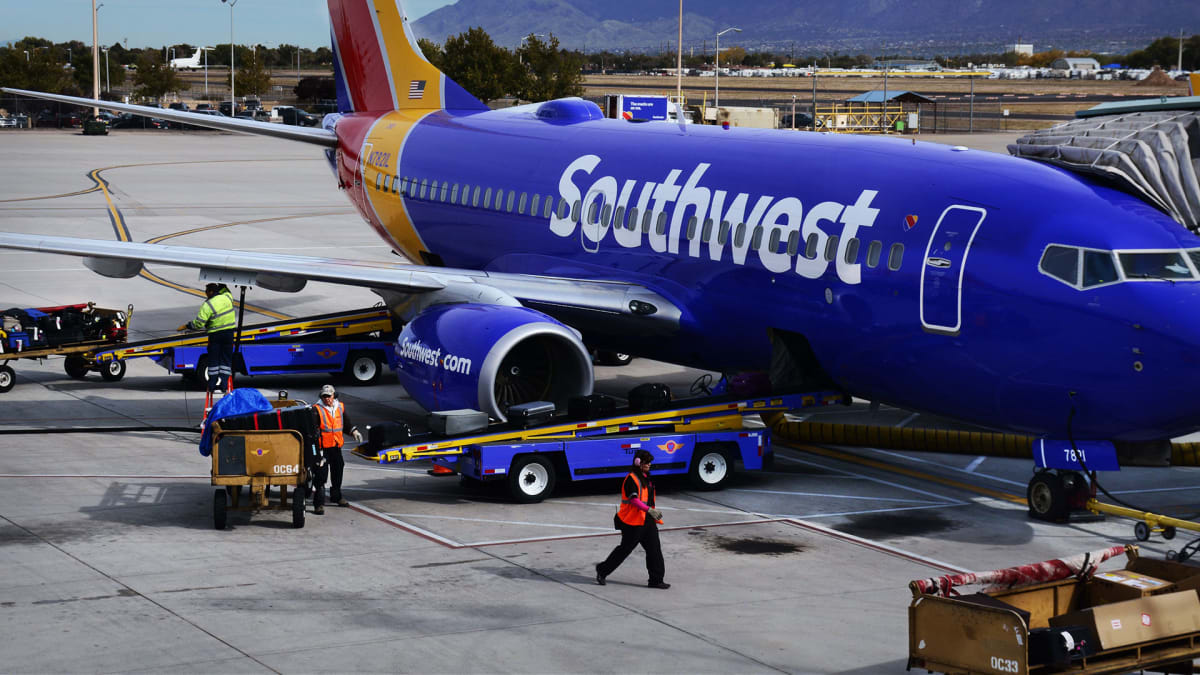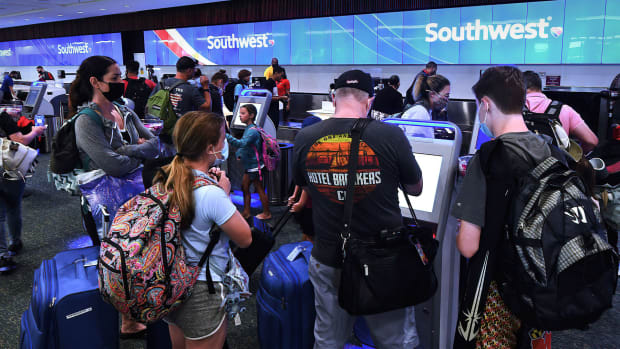
Southwest Airlines (LUV) wants to blame anything other than its own unwillingness to invest in keeping its software up to date on its holiday breakdown that stranded tens of thousands of passengers.
The airline has gone on a bit of an apology tour with CEO Bob Jordan leading the way.
"This has impacted so many people -- so many customers -- over the holidays," CEO Bob Jordan said in an interview on ABC's Good Morning America. "I'm extremely sorry for that. There's just no way almost to apologize enough."
The CEO went on to offer financial compensation to those impacted, but he placed the blame for the breakdown -- which led to nearly 16,000 flights being canceled -- on the weather.
"This was just an unprecedented storm for everybody -- for all airlines," Jordan said. "The storm had an impact, but we had impacts beyond the storm that obviously impacted Southwest very differently."
That's a line that Southwest chief operating officer Andrew Watterson more or less repeated while under oath testifying in the U.S. Senate.
“Let me be clear. We messed up,” he said. “We did not have enough winter operations resiliency.”
Both Jordan and Watterson want the public (and apparently the U.S. government) to believe that the storm caused the breakdown. In reality, the storm was just the inevitable straw that broke the camel's back.

Paul Hennessy/SOPA Images/LightRocket via Getty Images
Southwest's Own Pilots Saw This Coming
Southwest's executive team has acknowledged that the company's software ultimately played a roll in the holiday meltdown, but they have acted like that was a secondary factor. Basically, they have argued that if the storm had never happened, then the faulty, outdated software would never have been an issue.
“We believe our winter operations resiliency was the root cause and that will take longer to address and so we will focus on that for the bulk of our time,” Watterson told U.S. Senators.
The airline's own pilots have a major issue with that argument which the Southwest Airlines Pilots Association (SWAPA) detailed in an open letter.
"Systemwide meltdowns at Southwest Airlines have been increasing in frequency and magnitude over the past 15 years. From the original Midway Meltdown (and then the second larger one 1/3/2014) to destroying our on-time-performance with the added 'virtual airframes' experiment to the “router brownout” (2016) to the 'Jacksonville Center debacle' (Columbus Day weekend, October 2021) to what we are experiencing today," the letter declared.
SWAPA President Casey Murray made it clear during the Senate hearings that SWAPA had not only expected something like this to happen but had repeatedly warned the airline's management.
“Those who do not learn from history are doomed to repeat it. Southwest has a history of repetition,” Murray said. “Unfortunately, despite many opportunities, Southwest airlines management did not listen to its pilots and frontline employees who saw this meltdown coming.”
Southwest Executives Ignored the Warnings
Southwest and its pilots are currently negotiating a new contract and it's fair to say that there's some animosity between the two sides. Still, the pilots have very limited reasons to take down their own airline even if they are upset about their contract situation.
Basically, SWAPA's letter warned people to not fly Southwest unless major changes were made by management. That seems like something the pilots would only consider if they saw a real problem that had to be corrected.
"There has never been any real accountability for the decision-makers as a result of any of these fiascos, or the numerous smaller ones in between. If the saying that 'insanity is doing the same thing over and over again while expecting different results' is true, then what is it when the same people are allowed to do the same thing over and over again? Supreme insanity, perhaps?" the letter continued
Essentially, the pilots believe that former CEO Gary Kelly started the company on a path that led to its current situation which current management has chosen to not correct.
"As CEO, Gary Kelly made a conscious decision to make the less than necessary investments in tech upgrades in favor of maximizing shareholder return because, well, 'our tech’s been working ok for 20 years.' While Gary’s financial acumen cannot be debated, his poor operational leadership and judgment have been demonstrated repeatedly with each meltdown and finally laid bare with the current situation we find ourselves in," the pilots added.
Southwest has committed to spending $1.3 billion upgrading its technology despite its COO seeing "winter resiliency" as the key problem (or at least saying that while testifying).







